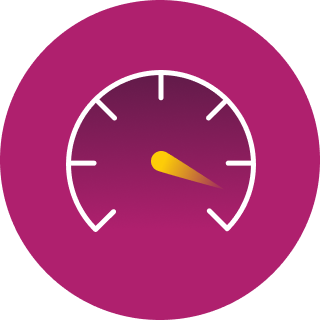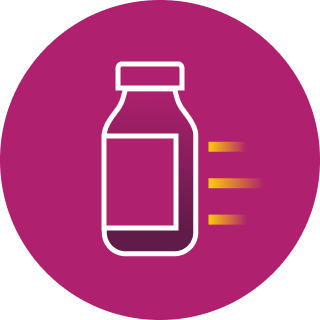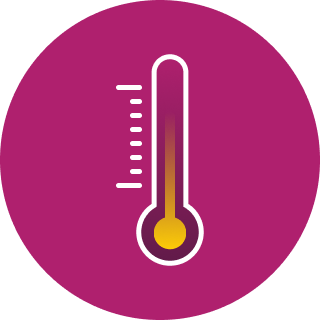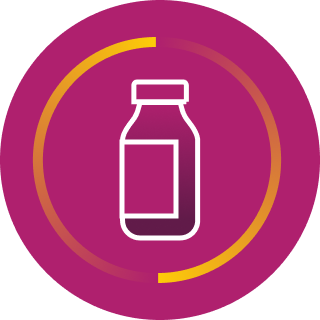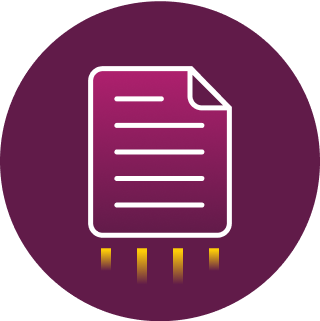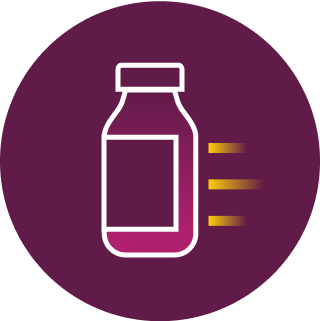
Fibryga for Congenital Fibrinogen Deficiency (CFD) Gain Control of Bleeding In the Treatment of CFD.
Fibryga is a human fibrinogen concentrate also indicated for the treatment of acute bleeding episodes in adults and children with congenital fibrinogen deficiency (CFD), including afibrinogenemia and hypofibrinogenemia.1
Fibryga is not indicated for dysfibrinogenemia.
Fibryga Efficacy for CFD
The fibryga clinical trial program in CFD comprises the FORMA-01, FORMA-02 and FORMA-04 studies:
Safety Profile

- In clinical trials, a similar safety profile was observed between fibryga and an active control comparator product1,2
- No seroconversions for HIV, HAV, HBV, HCV, or Parvo B191-3
- Most common adverse reactions (> 5% of subjects) were nausea, vomiting, pyrexia (fever) and thrombocytosis. Adverse events were generally mild, single events1-3
- The most serious adverse reactions that may potentially be observed with fibryga are thromboembolic episodes and anaphylactic type reactions3
Looking for safety information in AFD?
learn moreFamiliar reconstitution protocol

Fibryga is supplied as a lyophilized powder containing ~1 g fibrinogen concentrate (FC) per bottle. It's reconstituted prior to administration.
Each single-dose fibryga kit contains:
- One single-dose bottle of fibryga concentrate
- One transfer device (Nextaro®)
- One 50 mL vial of diluent (sterile Water for Injection)
How to Mix Fibryga
This simple, yet rapid preparation process enables HCPs to administer fibryga quickly and efficiently.
Preparing fibryga for administration follows standard aseptic protocols minimizing the need for extensive training.1
Open
Open package and attach
the nextaro transfer device.
the nextaro transfer device.
Mix
Mix by turning the diluent and transfer device upside down and attaching
the fibryga bottle. Gently swirl for
~5 minutes until the powder is fully dissolved. Remove the diluent vial.
the fibryga bottle. Gently swirl for
~5 minutes until the powder is fully dissolved. Remove the diluent vial.
Transfer
Transfer fibryga to the syringe
via the Luer lock connector on the nextaro device and draw the solution
into the syringe.
via the Luer lock connector on the nextaro device and draw the solution
into the syringe.
The Fibryga Reconstitution Guide video shows how to reconstitute Fibryga step‑by‑step using Nextaro:
Recommended Dosing1
Fibryga dosing, duration of dosing, and frequency of administration should be individualized based on the extent of bleeding, laboratory values, and the clinical condition of the patient. Functional fibrinogen level should be determined to calculate dosage.
iswipe left on table to see more
| Fibryga dose when baseline fibrinogen level is known | is not known | |
|---|---|---|
| Adults & Adolescents 12 years of age and above | Dose (mg/kg/ body weight) = [Target level (mg/dL) − measured level (mg/dL)] 1.8 (mg/dL per mg/kg body weight) | 70 mg per kg of body weight administered intravenously |
| Children Under 12 years of age | Dose (mg/kg/ body weight) = [Target level (mg/dL) − measured level (mg/dL)] 1.4 (mg/dL per mg/kg body weight) |
Recommended Target
Fibrinogen Plasma Level
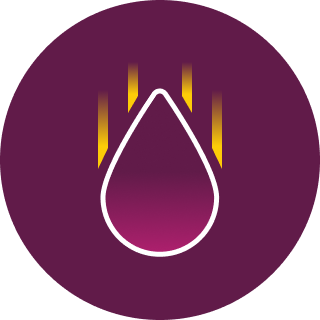
100 mg/dL = Minor Bleeding
150 mg/dL = Major Bleeding
Administration & Monitoring
For intravenous use only after reconstitution.
Administration1
- Do not administer fibryga in the same tubing or container as other medications
- Use aseptic technique when administering fibryga
- Administer fibryga at room temperature by slow intravenous injection at a rate not exceeding 5 mL per minute in patients with CFD
Monitoring1
- Monitor the patient's fibrinogen level during treatment with fibryga
- Additional infusions of fibryga should be administered if the plasma fibrinogen level is below the accepted lower limit (80 mg/dL for minor bleeding, 130 mg/dL for major bleeding) of the target level until hemostasis is achieved
Octapharma
Co-pay Assistance Program
The Octapharma Co-Pay Assistance Program can provide eligible patients with significant savings on some of the costs associated with their fibryga treatment. If you have patients currently being treated with fibryga, or if you're about to begin therapy, our co-pay program can offer them savings of up to $2,500 per year on the out-of-pocket costs associated with fibryga therapy.
Co-Pay Program Can Offer Patients
Savings Of Up To $2,500 Per Year
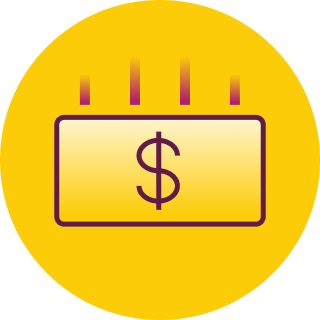
Find Out If Your Patients Are Eligible
By Calling 1-800-554-4440
3 Steps to Enroll
1
Download, complete,
and sign the fibryga
co-pay assistance form.
and sign the fibryga
co-pay assistance form.
2
The prescribing healthcare
provider writes a prescription
for fibryga therapy.
provider writes a prescription
for fibryga therapy.
3
The prescribing healthcare provider faxes the completed forms and fibryga prescription to Program Administrator, Covance at 1-800-554-6744.
What Happens Next?
- Program Administrator reviews documents to ensure patient meets program criteria
- Program Administrator processes completed fibryga co-pay assistance forms
- Patient is administered fibryga under the care and supervision of a healthcare provider
Octapharma Co-Pay Assistance Program Eligibility and Coverage: Your patient must currently be using fibryga, or have a prescription to begin therapy. Your patient must have commercial insurance. Those with Medicare, Medicaid, Medigap, VA, DOD, Tricare or other federal or state government insurance are not eligible. Co-Pay assistance may only be applied to co-payments, deductibles and co-insurance that may be associated with the cost of Octapharma products. The Octapharma Co-Pay Assistance Program does not cover costs associated with administration of therapy, such as office visits, infusion costs, or other professional services.
Reimbursement Assistance
Do you need help getting reimbursed for fibryga prescriptions?
Contact the Octapharma Support Center and be connected to an Octapharma representative who can help resolve your reimbursement matters. Our representatives are ready and equipped with expert advice and information to answer your questions about:
Get help with reimbursement by calling the Octapharma Support Center at 1-800-554-4440 or email us at usreimbursement@octapharma.com
Indications & Important Safety Information for Fibryga, Fibrinogen (Human)
Indications and Usage
Fibryga is a human fibrinogen concentrate indicated for fibrinogen supplementation in bleeding patients with acquired fibrinogen deficiency and in treatment of acute bleeding episodes in patients with congenital fibrinogen deficiency, including afibrinogenemia and hypofibrinogenemia.
Fibryga is not indicated for dysfibrinogenemia.
Contraindications
Fibryga is contraindicated in individuals who have manifested severe immediate hypersensitivity reactions, including anaphylaxis, to fibryga or its components (Sodium Citrate Dihydrate; Glycine; L-Arginine Hydrochloride).
Warnings and Precautions
Monitor patients for early signs of hypersensitivity or allergic reactions. If necessary, discontinue administration and institute appropriate treatment.
Thrombotic events have been reported in patients receiving fibryga. Treatment with human fibrinogen concentrate in congenital fibrinogen deficiency has been associated with thrombosis at target plasma fibrinogen levels that were below 150 mg/dL. The thrombotic risks may be greater when the target fibrinogen plasma level is 150 mg/dL. Weigh the benefits of administration versus the risks of thrombosis.
Fibryga is made from pooled human plasma. Products made from human plasma may contain infectious agents, e.g., viruses and, theoretically, the Creutzfeldt-Jakob disease (CJD) agent.
Adverse Reactions
The most serious adverse reactions observed with fibryga are thromboembolic episodes and anaphylactic-type reactions.
The most common adverse reactions observed in clinical studies with fibryga in acquired fibrinogen deficiency (>5% of patients) were abnormal hepatic function, acute kidney injury, anemia, atrial fibrillation, delirium and renal failure.
The most common adverse reactions observed in clinical studies with fibryga in congenital fibrinogen deficiency (>5% of patients) were nausea, vomiting, pyrexia (fever) and thrombocytosis.
Please see fibryga full Prescribing Information.
To report suspected adverse reactions, contact Octapharma USA, Inc. at 1-866-766-4860 or the FDA at 1-800-FDA-1088 or www.fda.gov/medwatch.
